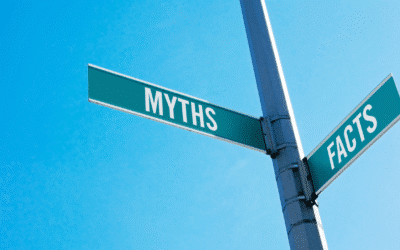Erectile dysfunction (ED) and low testosterone are interrelated conditions that affect millions of men worldwide, often causing significant impacts on their quality of life and relationships. Many men wonder if testosterone supplements might be the solution to their erectile problems, but the relationship between testosterone levels and ED is more nuanced than most realize.
Understanding Erectile Dysfunction and Testosterone
Erectile dysfunction (ED) is a common condition affecting many men worldwide. Men often feel stigmatized and misunderstood, leading to reluctance in seeking proper medical treatment. Doctors estimate that as many as 322 million men worldwide experience erection problems (Johns Hopkins Medicine).
Many men facing ED try to self-treat their sexual dysfunction by purchasing over-the-counter supplements, natural remedies, or illegally obtained “testosterone boosters” without understanding the underlying causes.
Tackling erectile dysfunction requires a medical approach that may include blood tests to check testosterone levels and other hormones that affect sexual function. You should consult a doctor for proper diagnosis and treatment of ED, as this condition can sometimes indicate underlying health issues such as cardiovascular disease, metabolic syndrome, or low testosterone.
Low testosterone levels, or Low T, is a condition known as male hypogonadism and contributes to erectile dysfunction by reducing libido and sexual desire. Testosterone is the primary male sex hormone produced primarily in the testicles. It contributes to male sexual development, muscle mass maintenance, and overall sexual function, which is why it also impacts erections (National Library of Medicine).
The Relationship Between Testosterone and Erectile Function
Testosterone helps maintain sexual function and serves as a key driver of libido, making it a key hormone for a healthy sex life. As men age, their testosterone levels naturally decline, which can contribute to both reduced sex drive and compromised erectile function.
Yet, the impact of erectile dysfunction extends beyond the bedroom:
- ED often leads to decreased sexual activity and satisfaction, putting strain on intimate relationships.
- Many men with ED experience lowered self-esteem and mood swings that affect their overall quality of life.
- Erectile dysfunction can serve as an early warning sign of underlying cardiovascular disease or blood flow problems.
- The stress and anxiety resulting from ED can create a cycle that further worsens erection problems.
- Low testosterone levels associated with ED may also cause fatigue, muscle mass loss, and changes in other aspects of health.
Being aware of the connection between testosterone and erectile function allows men to seek effective treatment for their sexual health concerns and hormone imbalances.

Testosterone Therapy for ED
Testosterone replacement therapy (TRT) is a recommended treatment for men with clinical signs and symptoms of low testosterone levels. This diagnosis comes from medically documented testosterone deficiency through blood tests.
TRT options include testosterone injections, testosterone gel, topical creams, and oral medications (pills). Each treatment option has unique advantages and disadvantages in terms of convenience, absorption rate, and potential side effects (Mayo Clinic).
Men with breast cancer, severe urinary tract problems, untreated severe sleep apnea, or uncontrolled heart failure should not undergo testosterone replacement therapy due to increased risk of complications.
Yet, those suffering from ED and low T have hope. Several testosterone trials and systematic reviews from clinical endocrinology research suggest that testosterone treatment may improve symptoms of mild ED and increase libido in men with low testosterone levels (National Library of Medicine).
While testosterone therapy shows promise for certain men with ED, it’s important to note that the American Urological Association and other medical organizations emphasize that medical professionals should closely monitor testosterone treatment for adverse effects and potential risks (American Urological Association).
Research published in the New England Journal of Medicine indicates that testosterone replacement may also offer multiple benefits for sexual function in older men with testosterone deficiency. However, TRT requires regular follow-up appointments to monitor hormone levels and assess overall health outcomes (New England Journal of Medicine).
At Huddle Men’s Health, our specialists can help determine if testosterone replacement therapy is right for you. We conduct comprehensive testing and personalized treatment plans tailored to your specific health needs. Learn more about our process!
Alternative Treatments for ED
When testosterone therapy isn’t appropriate or doesn’t fully resolve erectile dysfunction, several other effective treatments address ED by targeting underlying aspects of sexual function. These alternative approaches complement or replace testosterone replacement therapy, depending on the root causes of erectile dysfunction (Mayo Clinic).
- PDE-5 inhibitors such as Viagra can temporarily increase blood flow to the penis by blocking blood vessel constriction, allowing for a firm, long-lasting erection.
- Prescription medications beyond PDE-5 inhibitors may address other hormones or physiological factors involved in erectile function.
- Regular exercise improves mood, sleep, and overall health, which can boost self-esteem, sex drive, and erectile function.
- A healthy diet offers multiple benefits, including weight management, improved blood flow, and reduced risk of cardiovascular disease, which contributes to ED.
- Treatment for sleep disorders can improve energy levels, hormone balance, and sexual function.
- Stress reduction techniques help address psychological factors that may contribute to erection problems.
The most effective approach to treating erectile dysfunction involves combining medical treatments with positive lifestyle changes tailored to each individual’s specific needs and health profile.
Risks and Side Effects of Testosterone Therapy
Before beginning therapy, men should carefully consider both the potential benefits and the well-documented risks associated with hormone treatment (Mayo Clinic). While testosterone therapy may help with erectile dysfunction in some cases, it carries important health considerations that you should discuss with your healthcare provider, such as:
- Heart health: Increased risk of heart disease, cardiovascular events, and potential complications in men with pre-existing heart conditions.
- Blood abnormalities: Elevated red blood cell count may increase the risk of blood clots and restricted blood flow.
- Fertility impacts: Possible testicular shrinkage and reduced sperm production leading to infertility in some cases.
- Skin changes: Development of acne, oily skin, and increased risk of male pattern baldness.
- Mood disruptions: Some men experience mood swings, irritability, or emotional changes during treatment
- Sleep disturbances: Worsening of sleep apnea symptoms in men with existing sleep disorders
Regular follow-up appointments with your doctor to monitor these potential adverse effects help adjust treatment as needed to minimize risks while maximizing therapeutic benefits.

Address Your Sex Life with Huddle Men’s Health
While testosterone replacement therapy may improve erectile function in men with clinically low testosterone levels, it’s crucial to know that ED often has multiple causes requiring a treatment approach that includes hormone therapy, lifestyle changes, and other medical interventions. ED can be an important indicator of underlying health conditions like cardiovascular disease, making proper medical evaluation essential for both sexual and overall health.
For personalized advice about erectile dysfunction and testosterone treatment options, schedule a confidential consultation with Huddle Men’s Health today. Our team of specialists will work with you to develop an effective treatment plan that addresses your unique health needs and goals.
FAQs
Do testosterone pills help with ED?
Testosterone pills may help men with low testosterone and erectile dysfunction (ED), but they are not a guaranteed cure. ED can have multiple causes, including blood flow issues, stress, or underlying health conditions that testosterone alone may not fix.
Can low testosterone cause erectile dysfunction?
Low testosterone can contribute to low libido and reduced sexual function, but it is not always the primary cause of ED. Some cases of ED have root causes related to poor circulation, nerve issues, or psychological factors rather than hormone levels.
Is testosterone therapy an effective treatment for ED?
Testosterone replacement therapy (TRT) can improve sexual desire and mild ED in men with clinically low testosterone levels, but it is not the first-line treatment for ED. PDE-5 inhibitors like Viagra are more effective for treating ED related to blood flow issues.
What are the risks of using testosterone therapy for ED?
Testosterone therapy can have side effects, including increased red blood cell count, acne, mood changes, and a higher risk of heart disease. You should only use TRT under medical supervision with regular blood tests.
What are alternative treatments for ED?
If low testosterone is not the root cause of ED, other treatments include:
- PDE-5 inhibitors (Viagra, Cialis) to improve blood flow.
- Lifestyle changes like exercise, diet, and stress reduction.
- Psychotherapy for anxiety-related ED.
- Medical procedures such as penile injections or implants for severe cases.




